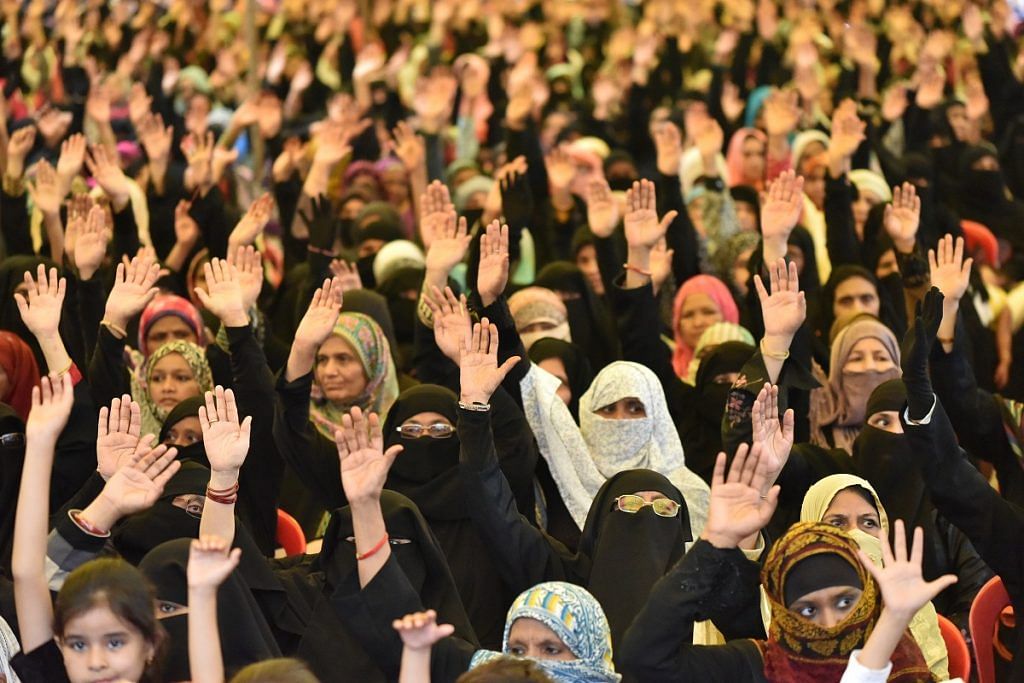Last week, I was invited to a news channel to express my thoughts on the Uniform Civil Code bill passed by the Uttarakhand government. It was an incredibly heartening moment for me, filled with a sense of optimism and gratitude. Finally, Indian Muslim women like me are no longer feeling abandoned by the Constitution of India, which was meant to embody progressiveness, rationality, and a staunch support for women’s rights – values championed by Jawaharlal Nehru. This marks a significant progress toward inclusivity and recognition, bringing us closer to the ideals that our nation was built upon.
However, certain Muslim radical groups, self-appointed religious leaders, and patriarchal organisations, while benefiting from the freedoms granted by our modern, progressive Constitution, have raised objections. They argue that specific laws should not be applied within their community as they contradict their religious beliefs. Furthermore, they make it a matter of religious freedom, effectively advocating for the ability to pick and choose which laws to follow—a case of wanting to have their cake and eat it too.
While the Uttarakhand government’s UCC bill brought me relief and happiness, it comes as no surprise that Islamist groups such as the Popular Front of India (PFI), NGO All India Muslim Personal Law Board (AIMPLB), and politicians like Asaduddin Owaisi–who thrive on peddling Muslim victimhood–oppose it. Their opposition does not signify oppression against Muslims; rather, it signals the erosion of privileges enjoyed by communal and Islamist groups. These privileges, which were inherently anti-women, anti-Muslim, and, most importantly, anti-India and anti-equality, are now being challenged.
Owaisi has taken a divisive stance. He turned the discussion around the UCC into a Hindu-Muslim argument instead of addressing the tangible benefits it could bring to women within the Muslim community. His contention is that the code is not truly uniform but rather a Hindu-centric imposition on all citizens. But he conveniently overlooked the fact that the UCC is much like the Hindu Code Bill because the bill has undergone significant reform. Owaisi also takes issue with certain aspects of the bill, such as provisions regarding Halala and polygamy.
Additionally, he argues that the bill infringes upon the fundamental rights guaranteed by Articles 25 and 29, which protect religious practices, culture, and inheritance. He failed to acknowledge several crucial points. First, there is no prerequisite to follow Sharia law to be considered Muslim; adherence to the five pillars of Islam suffices.
Also read: How did UCC become a Muslim issue? There’s an invisible apparatus at work
End of judicial bodies
Numerous Muslim-majority countries, such as Turkey, have adopted secular and gender-equal laws successfully. Additionally, many Muslims residing in Western countries abide by the laws of the land while maintaining their faith without conflict. Second, the argument that cultural preservation justifies the oppression of women is deeply flawed. If Hindu society were to advocate for the preservation of practices like Sati on cultural grounds, the state would rightfully intervene to prevent such injustices. Similarly, the state has a duty to ensure that no individual, regardless of their cultural or religious background, suffers injustice or oppression.
Another argument stems from self-appointed Muslim voices, primarily the AIMPLB. They contend that the proposed law on the UCC by the Uttarakhand government is unnecessary and undermines the principle of unity in diversity. However, this argument ignores the fact that unity in diversity does not imply a tolerance for discrimination or inequality. Rather, it emphasises the coexistence of various cultures and beliefs within a framework that upholds fundamental rights and equality for all individuals, regardless of their background.
Nobody can deny Muslims the right to practice their rituals, live according to their beliefs, or dress as they choose. These are personal freedoms that are protected and respected within legal bounds. The issue at hand pertains to legal terms where discrimination against women cannot be tolerated. Therefore, the call for a UCC does not negate diversity; rather, it seeks to ensure equality and justice within the legal framework.
It’s entirely understandable why organisations like AIMPLB would oppose the UCC. Such a code would indeed challenge their authority, as they often function as parallel judicial bodies within the Muslim community. By advocating for a UCC, the Uttarakhand government aims to establish a uniform set of laws that apply equally to all citizens, thereby promoting equality before the law and diminishing the influence of parallel judicial bodies.
As an Indian Muslim woman, I wholeheartedly support the implementation of the UCC. The truth is evident when we look at surveys conducted by organisations such as the Bharatiya Muslim Mahila Andolan (BMMA), which provide a glimpse into the desires of ordinary Indian Muslim women.
According to the BMMA survey conducted across 10 states, over 90 per cent of Muslim women have expressed their desire for a ban on oral and unilateral Talaq (divorce), rejecting the practice of polygamy. In fact, approximately 91.7 per cent of women surveyed voiced their opposition to polygamy, advocating that a Muslim man should not be allowed to have another wife while the first marriage is still subsisting. These survey findings, which covered states like West Bengal, Maharashtra, Bihar, and Jharkhand, shed light on the overwhelming support for reforms within the Muslim community.
The survey also highlighted that 83.3 per cent of Muslim women surveyed believed that the codification of Muslim family law would help them attain justice. These statistics clearly demonstrate that Indian Muslim women are speaking up for themselves, advocating for their rights and seeking justice within the framework of a Uniform Legal Code. It’s high time that these self-appointed Muslim leaders start listening to the genuine concerns and aspirations of women.
Amana Begam Ansari is a columnist and TV news panelist. She runs a weekly YouTube show called ‘India This Week by Amana and Khalid’. She tweets @Amana_Ansari. Views are personal.
